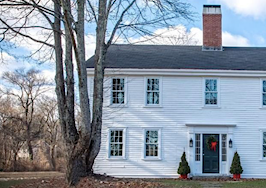Millennials are 13 times more likely than baby boomers to purchase a haunted house, according to a survey of 1,000 Americans released by Clever Real Estate.
Although millennials are more likely to believe in the supernatural, the brokerage says that’s not the reason why this generation is willing to share their space with a ghost or two. Haunted or stigmatized homes with sketchy histories often come with lower price tags that better fits millennials’ budgets as they search for their first home.

“Many (31 percent) are interested in spending under $200,000, which can severely limit their options in throughout much of the country,” the report read.
“In a previous report, we noted that 67 percent of millennials are willing to buy a fixer-upper, which jives with our current finding and suggests millennials might be more willing to deal with character flaws, like faint whispers in the dead of night.”
Beyond generational differences, the report revealed a clear contrast between genders and their willingness to live in a haunted home. Men are twice as likely to live near a cemetery, 2.4 times more likely to purchase a haunted home, and three times more likely to live in a home where someone was murdered.
Clever says men’s willingness to live in a haunted home comes from two factors: They’re less likely to believe in paranormal incidences, and they’re more likely to choose the first listing they find.
“The tendency for women to disregard creepy homes could be a microcosm of larger gender differences in buying and shopping habits,” the report read. “Women are more likely to ‘shop around’ and spend more time considering multiple options than men.”
Although this report may come as welcome news to an agent listing a home with a ghastly past, it’s important to note that some states require agents to disclose if a murder has happened in a home.
“The law urges buyers, sellers and their agents to engage in fair and honest dealing with all principals in the real estate transaction,” explained agent Dana Bull in a haunted home explainer for Zillow. “However, the laws that regulate disclosure of sketchy events vary from state to state.”
“Some state laws explicitly relieve the salesperson or broker of the obligation to disclose certain property stigmas,” she added. “But if you or your agent asks a seller’s agent directly, they must answer truthfully.”












